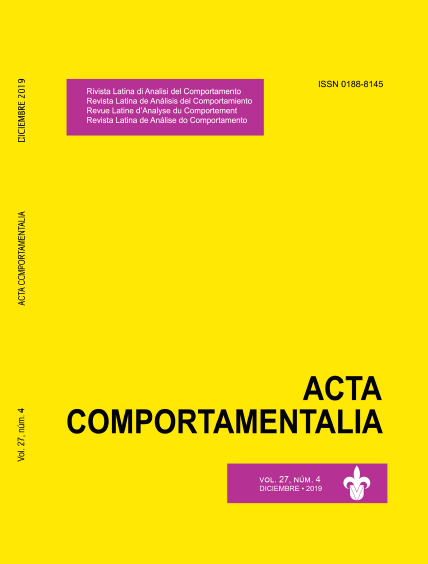Reflexões sobre a discussão do (in)determinismo na Análise do Comportamento brasileira
DOI:
https://doi.org/10.32870/ac.v27i4.72028Keywords:
Determinism. Indeterminism. Radical Behaviorism. Behavior Analysis. Epistemological commitments.Abstract
Although determinism can be defined as one of the philosophical principles of radical behaviorism, the definition of that concept and the consequences of its adoption for the production of knowledge in Behavior Analysis are still debatable. In the current debate about determinism and its opposing thesis, indeterminism, there are propositions which are gaining notoriety in the Brazilian discussion of those subjects. In this essay, two propositions have been highlighted, since their philosophical aspects do not completely fit previous taxonomies of the subject: one states that Behavior Analysis should be a determinist science, proposed by Dittrich and Strapasson; and another states that indeterminism is a valid alternative to be adopted, and perhaps a more desirable one, proposed by Laurenti and collaborators. Those two theses are compared regarding their ontological and epistemological commitments, the practical consequences of said commitments and the arguments in favor of each thesis. Conceptual divergences were found in the definition of determinism and indeterminism presented by those groups of authors, moreover, both theses fail to properly define each other (i. e., aspects of the determinist thesis are ignored by the indeterminist thesis and vice-versa). Although the two theses are irreconcilable if one is to consider only their ontological commitments, we identified few differences from a practical standpoint, based on their epistemological commitments. One of the epistemological commitments identified, which is related to the motivational value of determinism and indeterminism, states that the adoption of determinism or indeterminism is useful to maintain and encourage scientific activity, for their own set of reasons in each case. Those reasons, we argue, are insufficient to properly distinguish the practical consequences of determinism and indeterminism. At the same time, both theses assert some sort of limitation to the human knowledge, thus explaining the probabilistic aspect of data. Therefore, the solution to the debate between determinism and indeterminism in Behavior Analysis seems to not reside in the immediate consequences of the adoption of those theses. We highlight that the communication with other fields of knowledge, such as Biology and Physics, through a detailed conceptual analysis, is a promising endeavor to support an eventual prescription of one of those theories to behavior analysts.
Downloads
Downloads
Published
How to Cite
Issue
Section
License

<a rel="license" href="http://creativecommons.org/licenses/by-nc-sa/4.0/"><img alt="Licencia de Creative Commons" style="border-width:0" src="https://i.creativecommons.org/l/by-nc-sa/4.0/88x31.png" /></a><br />Este obra está bajo una <a rel="license" href="http://creativecommons.org/licenses/by-nc-sa/4.0/">licencia de Creative Commons Reconocimiento-NoComercial-CompartirIgual 4.0 Internacional</a>.






